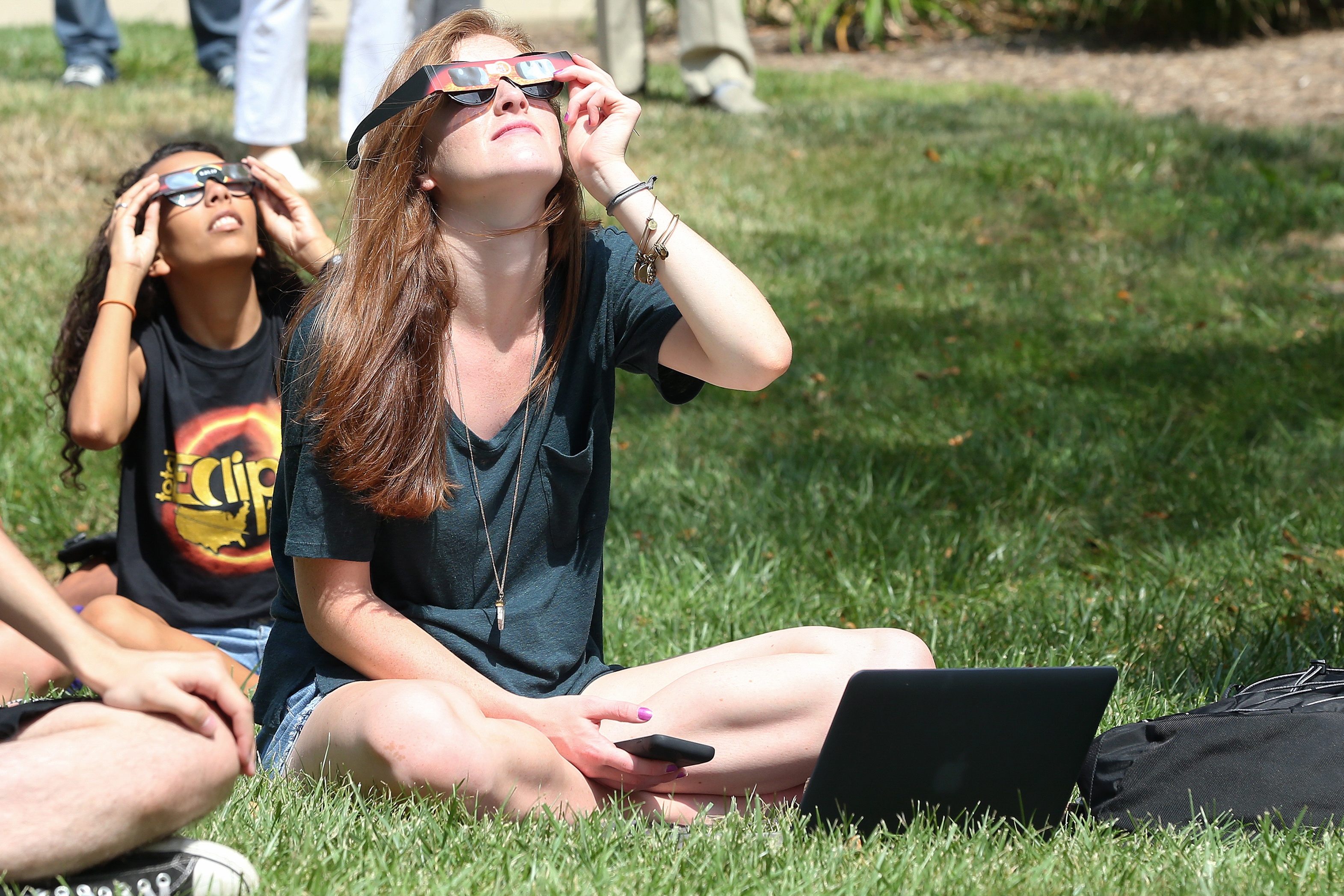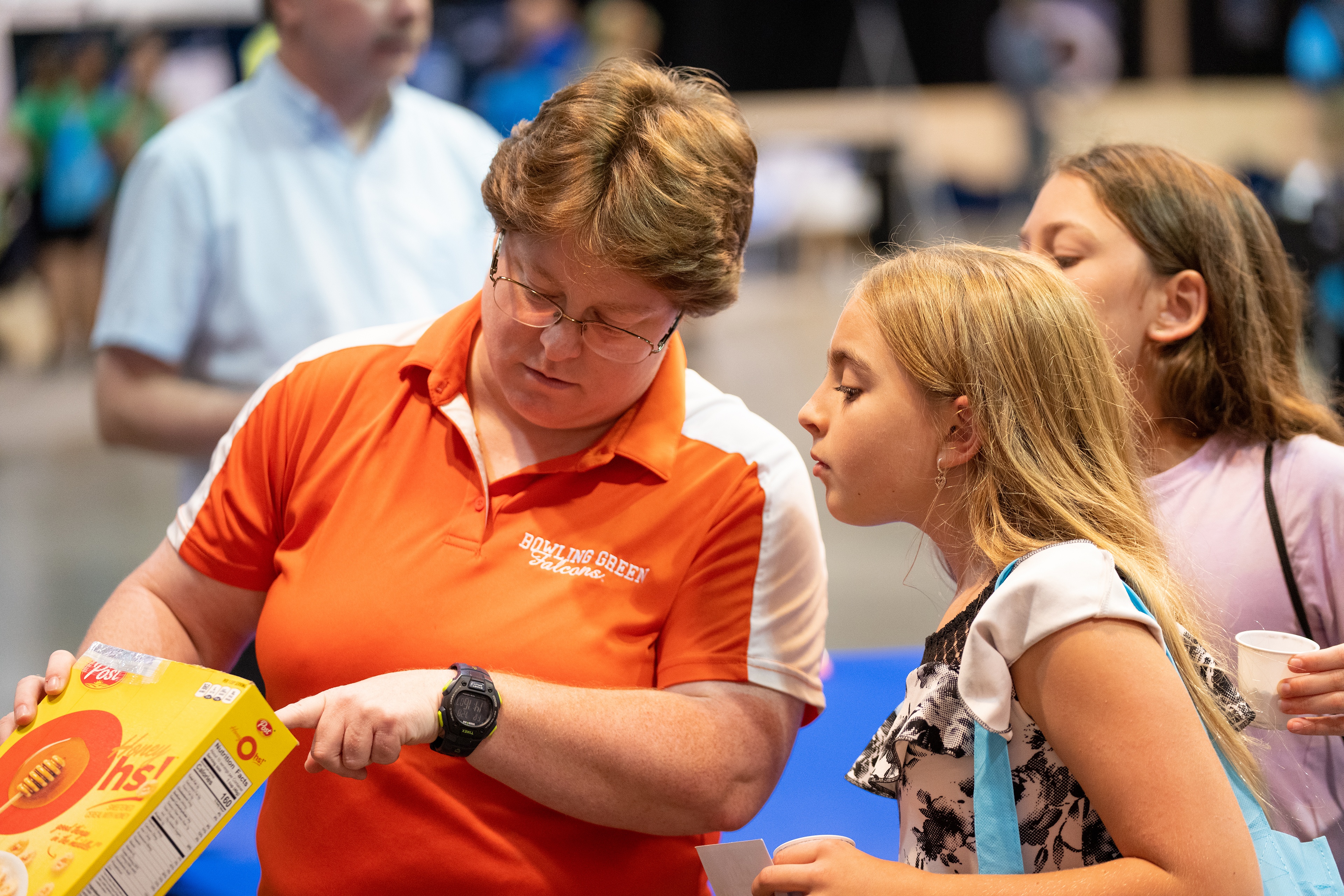
"It's a human experience" | BGSU hosting weekly speaker series on the historical and cultural significance of total solar eclipses
Estimated Reading Time:
The free, public lectures kick off Jan. 25 and run through April 4
On April 8, 2024, Bowling Green, Ohio, will have one of the country’s best views of a once-in-a-lifetime total solar eclipse as the moon passes directly between the Earth and the sun — rendering the sky dark for roughly three minutes.
To educate and entertain the community while bringing awareness to the rare and spectacular event, Bowling Green State University is hosting an 11-week Eclipse Speakers Series highlighting the historical and cultural aspects of total solar eclipses.
The weekly series, which begins on Jan. 25 and culminates on April 4, will feature University faculty and experts from several colleges and departments, including the College of Arts and Sciences, College of Musical Arts, and the English and art departments, with events for both adults and children.
"One of my big goals as we get close to the eclipse is to share with people just how much it's a human experience," said Dr. Kate Dellenbusch, a teaching professor in the BGSU Department of Physics and Astronomy. "With the speaker series, I want to share with the public a lot of the interesting connections from astronomy, history, literature and music – the kinds of connections that humans have made to eclipses."

Most events will begin at 7:30 p.m. in the BGSU Planetarium following a free planetarium show at 6:30 p.m. All events are free and open to the public.
Dellenbusch will lead off the speaker series with a presentation titled, "Eclipses: Celestial Shadow Dances." The lecture will explain what an eclipse is, why they're visible and what the public can expect to see on April 8.
Throughout the series, speakers will explore why eclipses were historically hard to predict, eclipses and astronomical phenomena in art history, the use of music in planetarium eclipse demonstrations and international perspectives on astronomical knowledge.
"The eclipse is not necessarily just about astronomy or physics. It's obviously relevant to those disciplines, but throughout human history and prehistory, eclipses were really mysterious things," Dellenbusch said. "Suddenly, the sun disappeared for a few minutes, and often that was terrifying. There are stories from different cultures: Beating drums to get the dragon that's eating the sun to go away and let the sun come back. The speaker series is meant to get people excited about the eclipse and teach people about connections to other disciplines."
The 2024 Reddin Symposium in Canadian Studies titled, “The Sky Has No Borders: Perspectives on Astronomical Knowledge from Canada, Mexico and the United States,” will be presented at the Wood County District Public Library on Feb. 22 as part of the speaker series. The panel discussion with keynote speaker Randall Rosenfield, archivist at the Royal Astronomical Society of Canada, and scholars from astronomy and history will explore the many ways people experience the night sky.
On the day of the eclipse itself, a watch party will be held from 1-4:30 p.m. at the Doyt L. Perry Stadium. The event will include various fun and educational activities, demonstrations, music, telescope viewings and more. Free solar eclipse glasses will be provided for safe viewing.
In addition to being a prime location to view the total solar eclipse, BGSU has traditionally played a significant role in Ohio’s science and engineering successes by producing job-ready graduates in numerous STEM-related fields.
Within the University's physics and astronomy department in the College of Arts and Sciences, BGSU students actively participate with faculty in cutting-edge scientific research in astrophysics, materials science, nano-science, solid-state physics and computational physics.
In addition, the BGSU Planetarium and Observatory also offers astronomy research, education, and community engagement opportunities. These experiences are crucial for developing the credentials that graduate programs and employers seek.
Related Stories
Media Contact | Michael Bratton | mbratto@bgsu.edu | 419-372-6349
Updated: 03/14/2025 11:26AM




